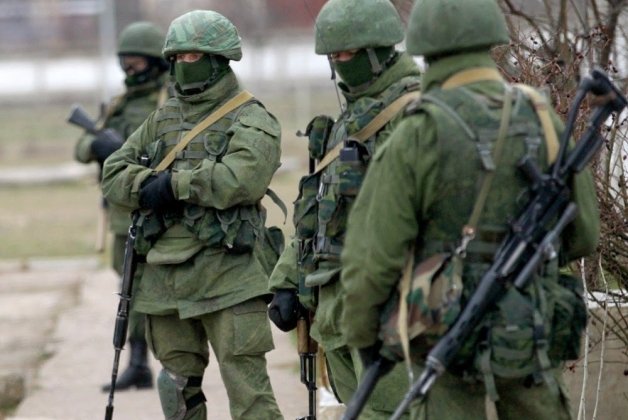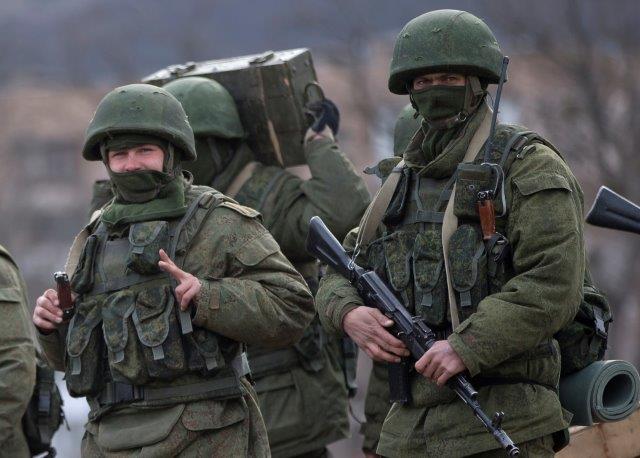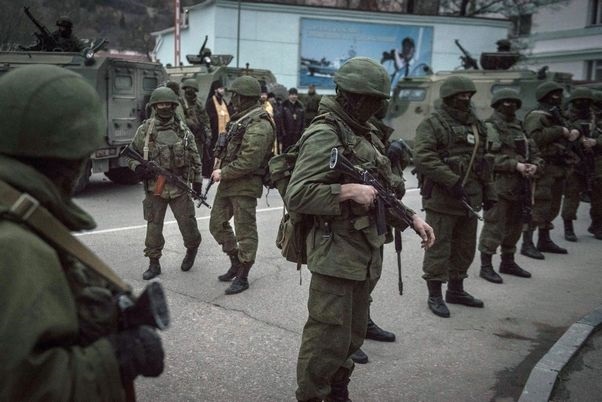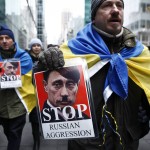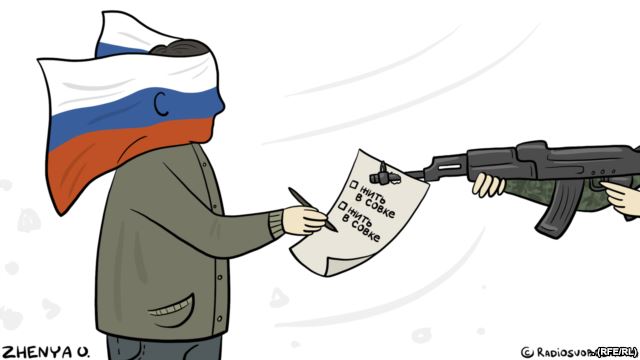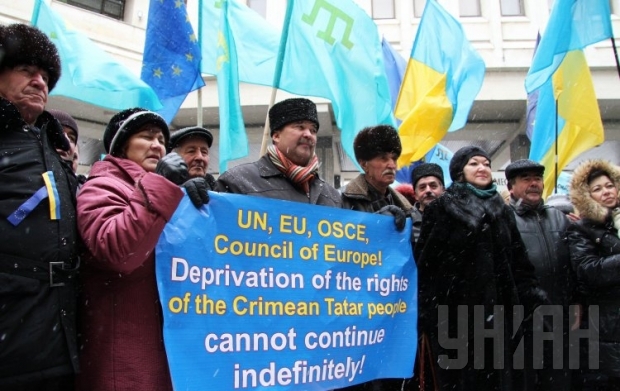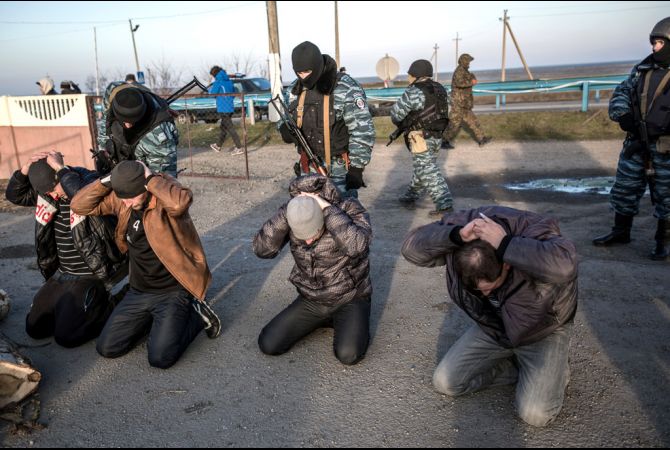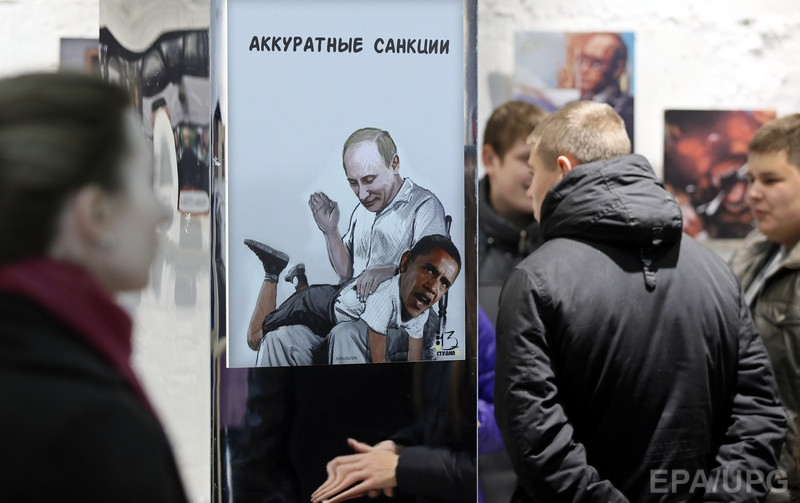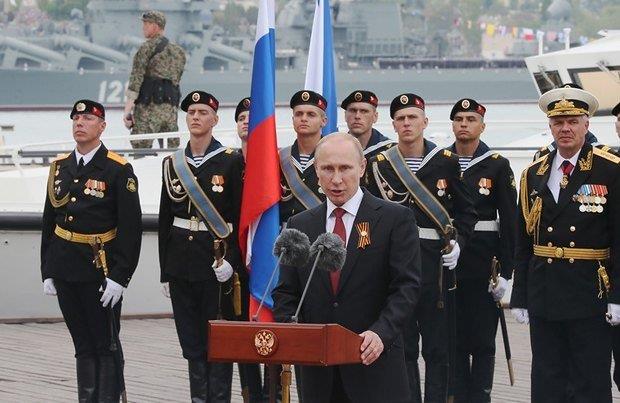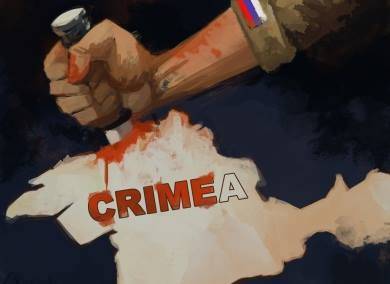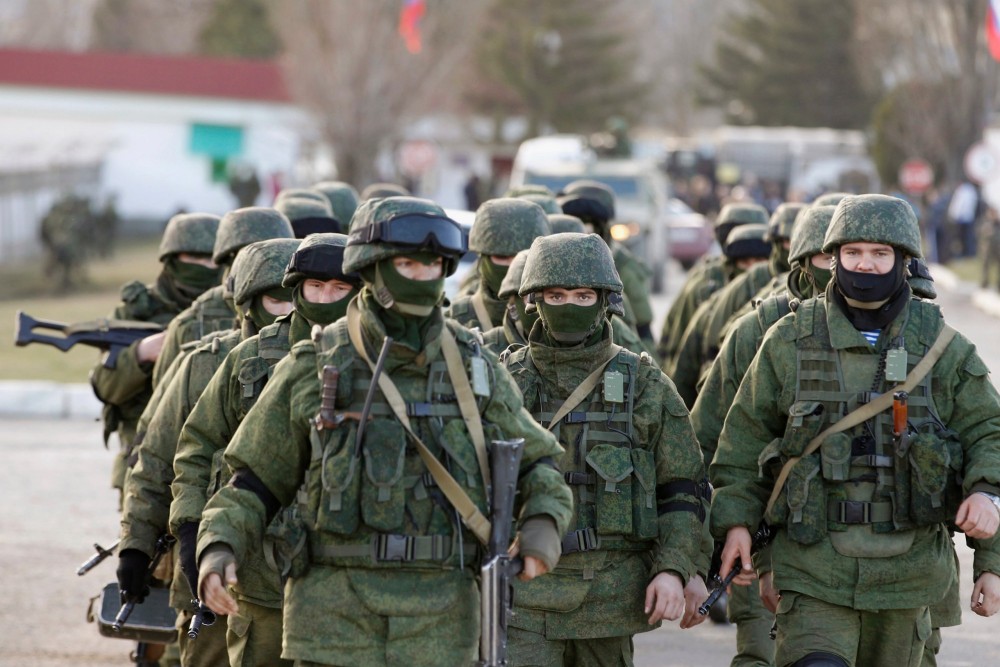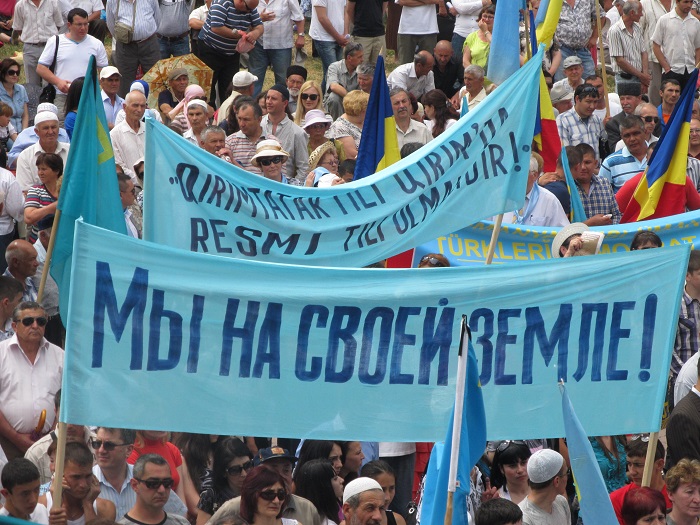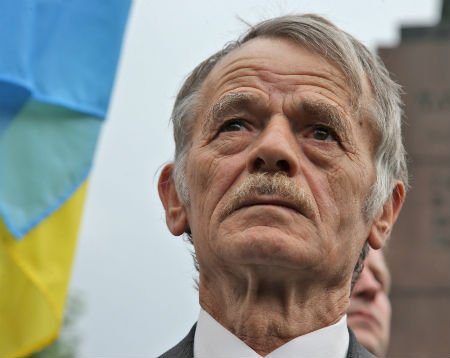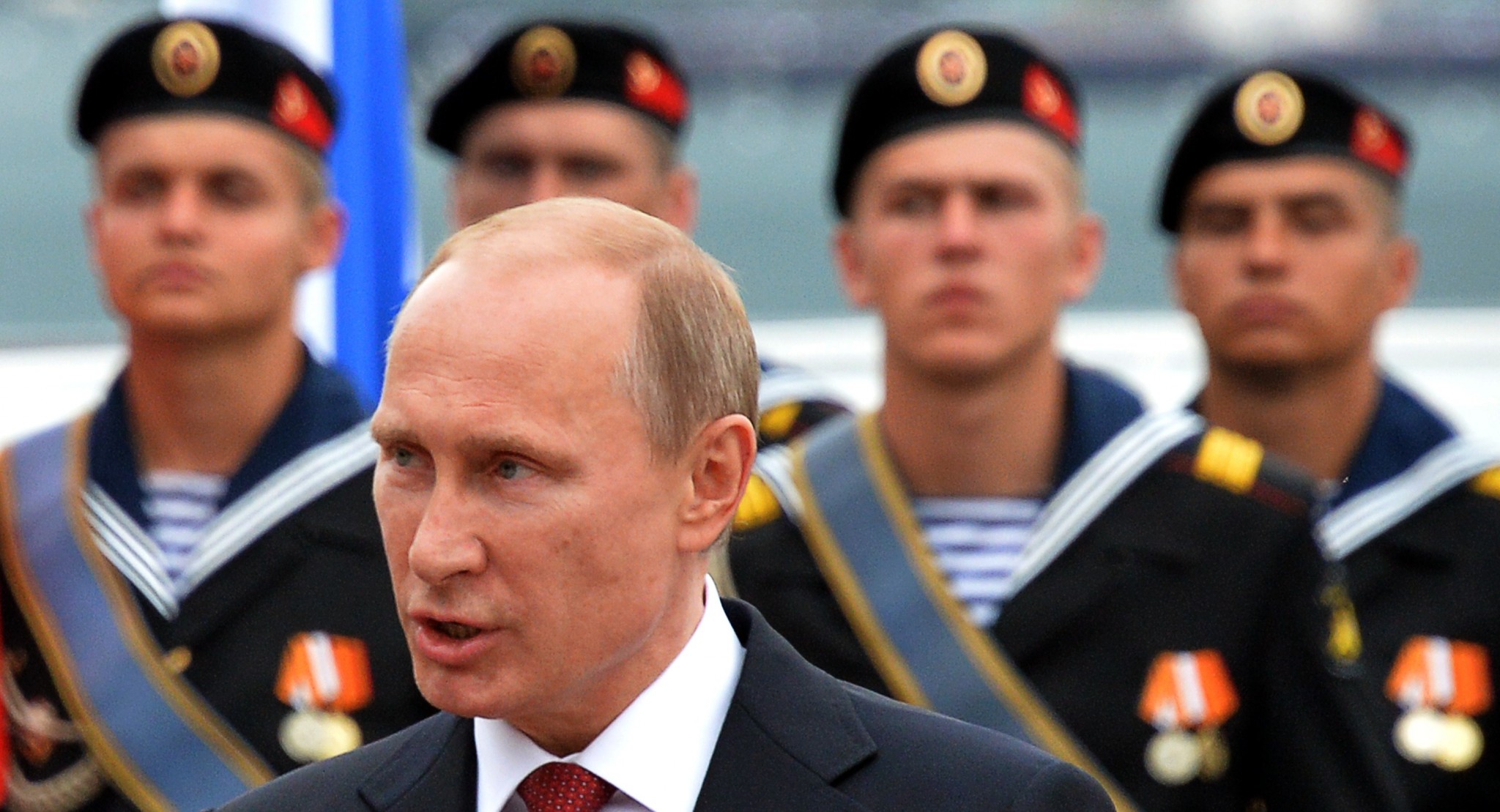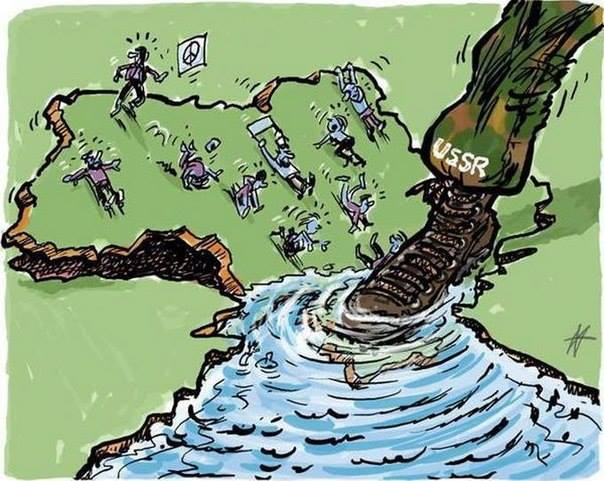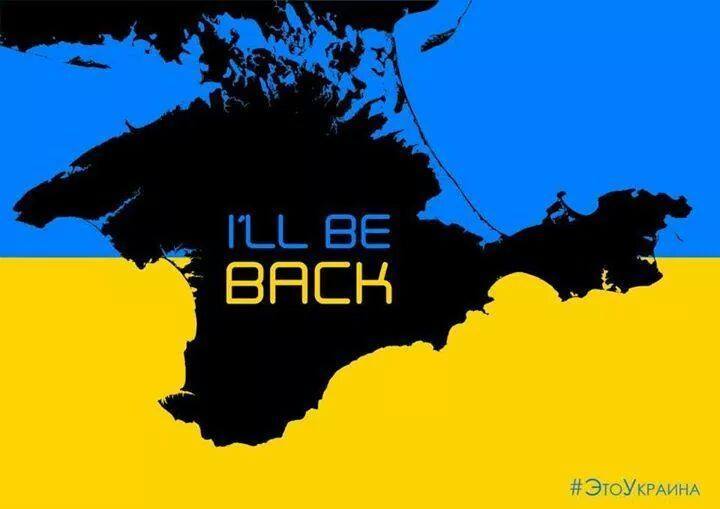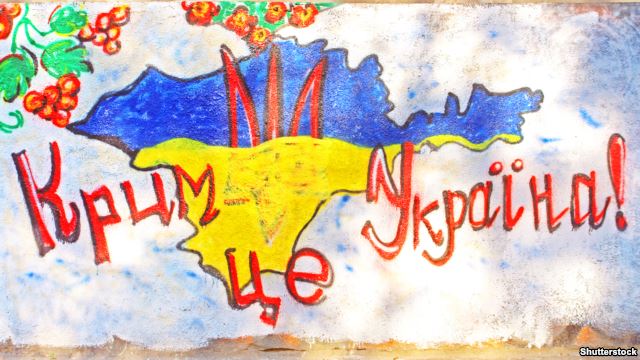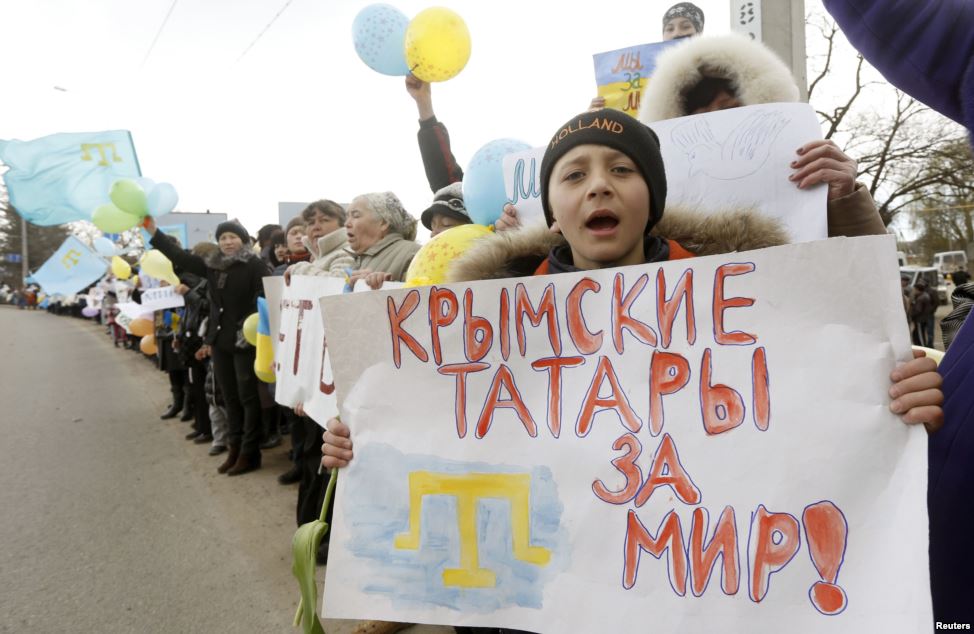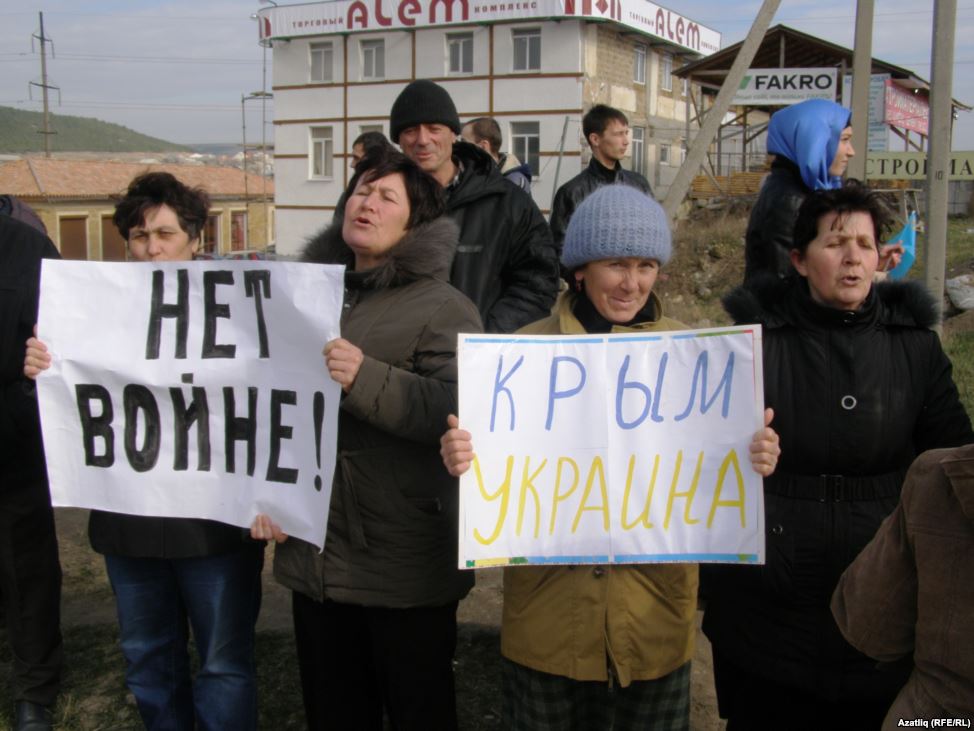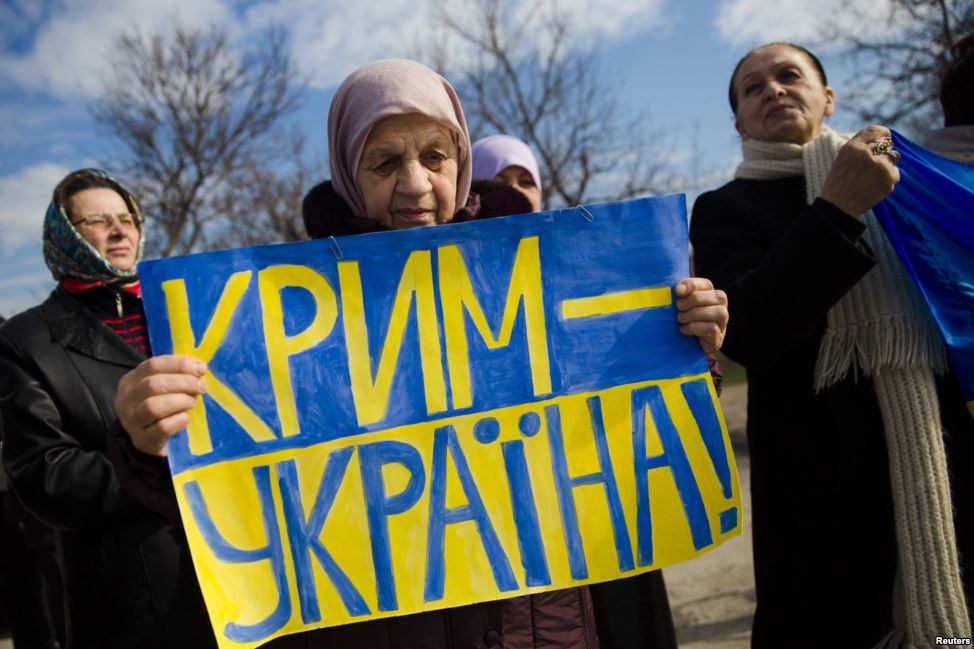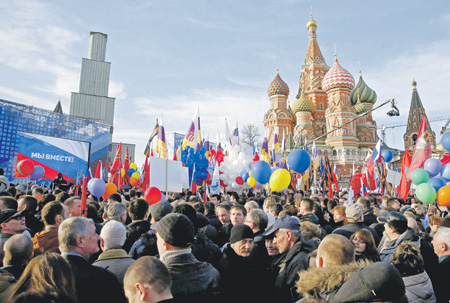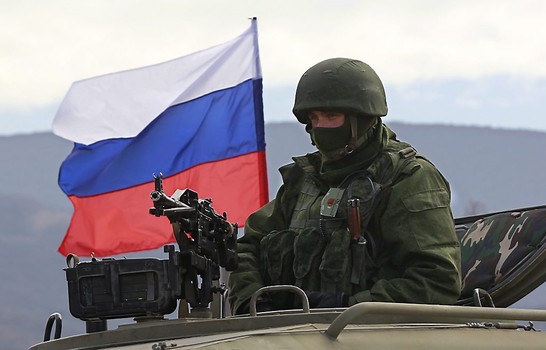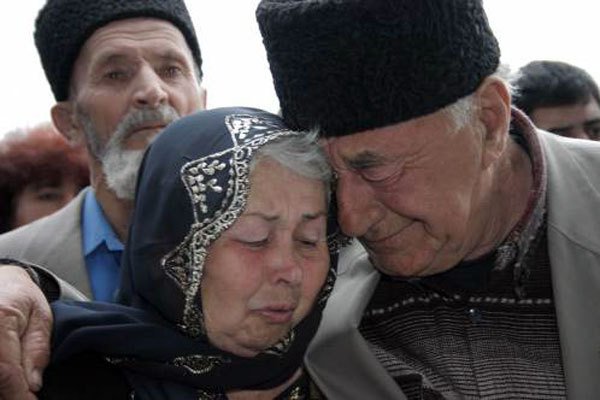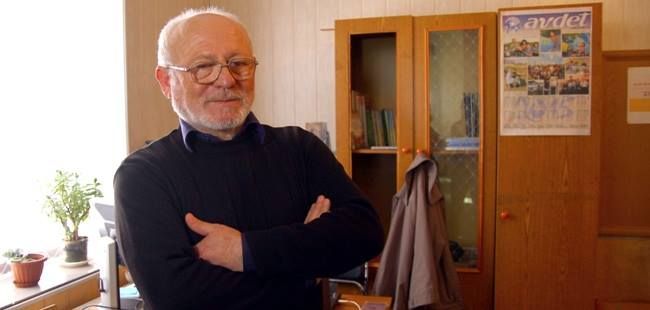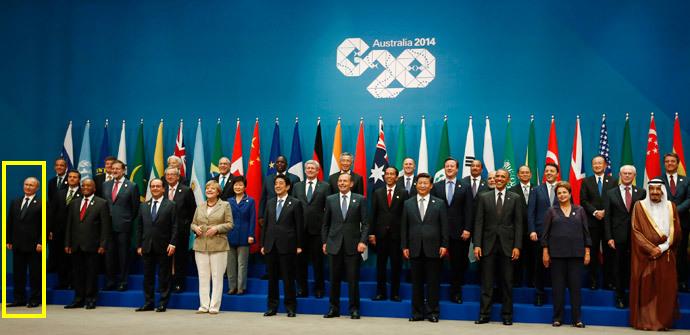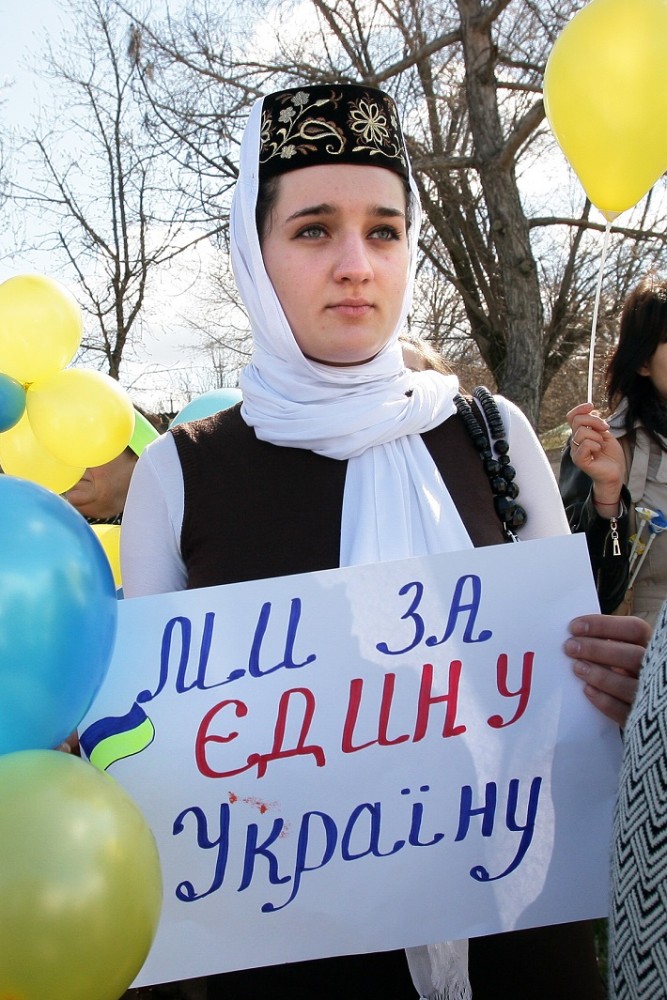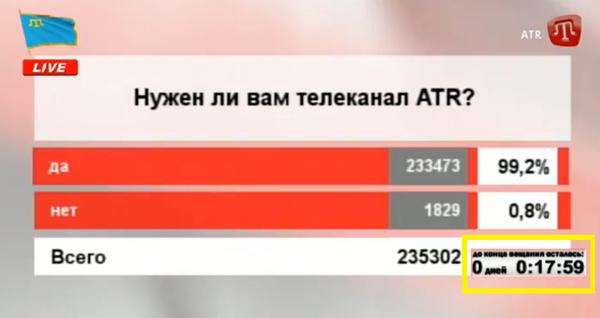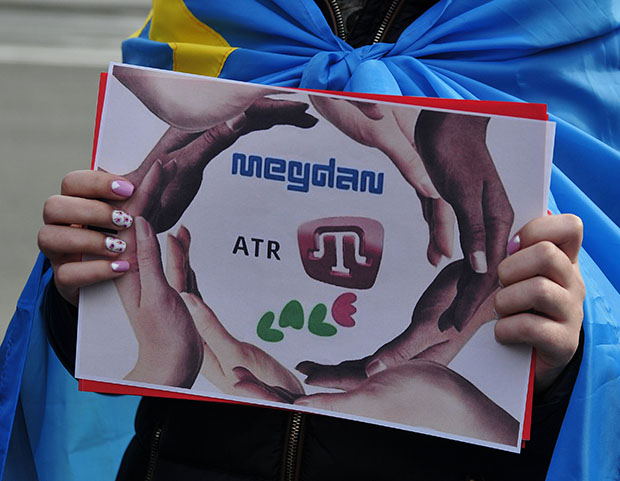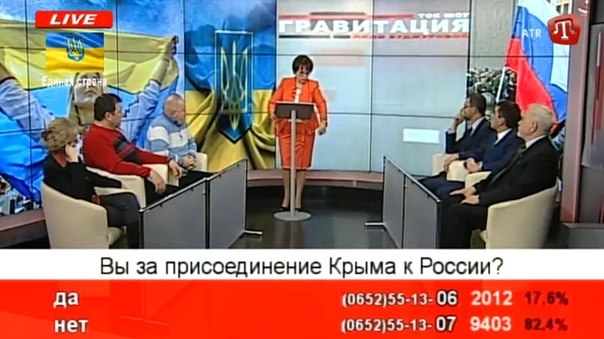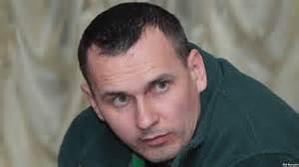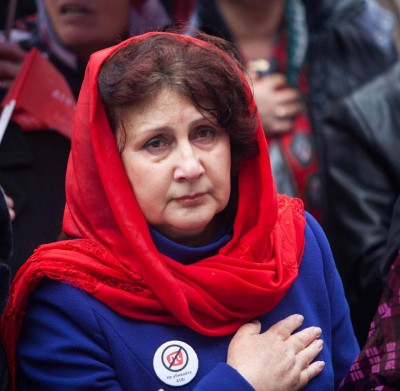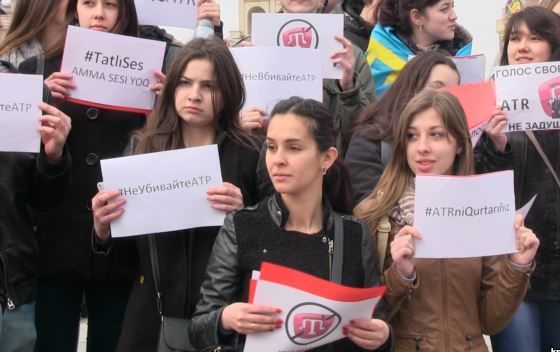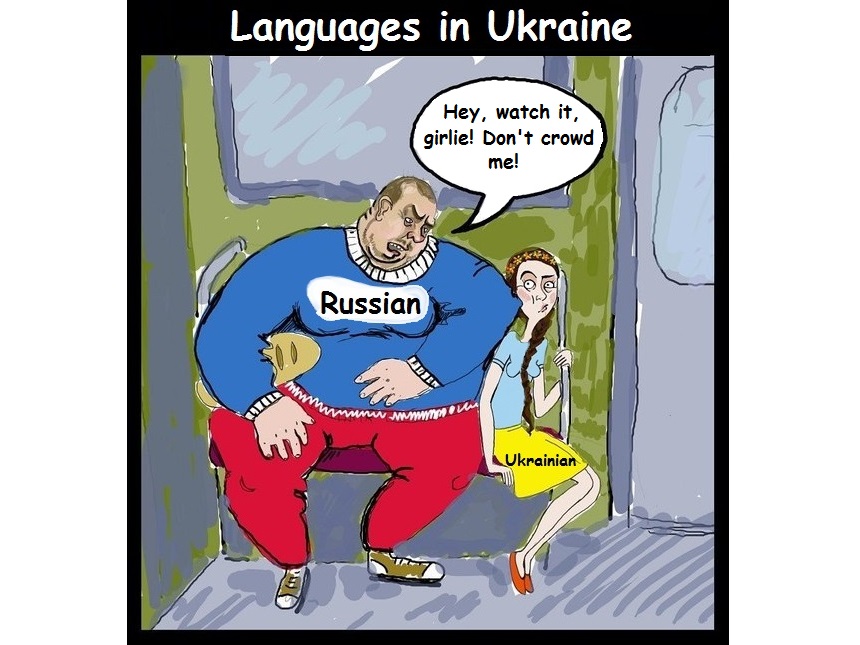Today, the National Security and Defence Committee has declassified and published the minutes of the most important high-level meeting of Ukrainian leadership after the Maidan. Much of this information has been already discussed by analysts and the media; but some details are still curious to point out to understand the ensuing political debate in Ukraine and beyond.
On 28 February 2014, as Russia was occupying the Crimea with its troops, officials of the National Security and Defence Council of Ukraine (NSDC) had met in one of the rooms of Verkhovna Rada. As Oleksandr Turchynov, then a parliament speaker and acting president of post-Maidan Ukraine, himself pointed out, the discussion was held in unprotected premises, so the participants would probably be unlikely to cite too sensitive details.
Related: Chronology of the annexation of Crimea
What to do in Crimea?
- All the participants realized how fragile Ukraine’s position in the Crimea was, as many army servicemen and members of the riot police had deserted or joined the enemy.
- PM Yatseniuk mulled a political settlement with the self-proclaimed authorities in Crimea (fiscal decentralization, language concessions), but admitted Russia would not allow such a settlement. Interestingly, another participant of the discussion, Andriy Senchenko (an MP from Crimea, member of Tymoshenko’s party) openly contradicted Yatseniuk. Senchenko claimed that it would be wrong to “negotiate with traitors and separatists” and suggested some half-baked legislative changes instead.
- However, not all NSDC members seemed to even agree on the legal status of Russia’s collaborators in Crimea. Prosecutor General Makhnitsky, nominated by the right-wing-populist Svoboda party, claimed that the most his Office could charge Aksenov and Konstantinov with (Russian puppets in Crimea) was “illegal power grab”, not separatism. That nonchalant designation provoked Turchynov’s indignant outburst that they were “terrorists” and “separatists”.
- Some participants seemed more concerned with the internal threats to the authorities in mainland Ukraine rather than the Russian aggression in Crimea. For example, deputy PM Yarema (responsible for law enforcement) insisted on immediate arrest of a notorious Right Sector member as a way to show consolidation of power post-Maidan.
- In the end, Turchynov initiated a vote on the introduction of martial law in Crimea, but all the other NSDC members spoke against it. Yatseniuk claimed it would be tantamount to announcing war against Russia, which Ukraine could ill-afford. Apparently, Yatseniuk was a dove in that discussion with tacit support from his colleagues Yarema and Tenyukh. Tymoshenko also claimed that “we should become the most peaceful nation on Earth and behave like doves of peace”; her only proposal was “holding peace conferences” and writing addresses to Western countries.
- The then-head of the Central Bank Kubiv claimed that deposits were actively withdrawn from bank accounts in Crimea and Interior Minister Avakov explained that Russians created effective supply chains for the defecting Berkut riot policemen on the peninsula. No ideas were voiced on how to tackle these challenges.
Could the West help?
- Then-Defence Minister Teniukh asked the NSDC’s authorization for full combat readiness of Ukrainian troops, especially the aviation. He was particularly wary of getting embroiled in Crimea to only be attacked by Russia in the north: Teniukh opined that Russian troops could reach Kyiv overnight.
- PM Yatseniuk appeared quite pessimistic about Ukraine’s chances to get military assistance from any of the Western countries. No-one in the room appeared ready to contradict him on this. It was as if Yatseniuk totally monopolized the dialogue with international partners. With hindsight, such “monopolization” of external communication might have been hugely detrimental. For example, Yatseniuk also claimed that the US had “no position yet” after talking to US vice-president Biden, but he did not elaborate on how his office intended to change that.
- SSU chief Nalyvaichenko claimed that “Americans and Germans” asked Ukraine to refrain from any active steps, because their intelligence signaled Russia’s readiness to start ground operations against Ukraine in the east. Similarly, the then-Foreign Minister Deshchytsia implied Visegrad-4 countries (Poland, Hungary, Slovakia, Czech Republic) cautioned him against drastic moves.
- Yulia Tymoshenko, released from prison just a week before, was also present at the meeting as a leader of a major parliamentary faction. Yet the first time when Tymoshenko actually entered the discussion was when Turchynov suggested that Ukraine could request joining the NATO. That’s when Tymoshenko declared that talking of “urgent NATO membership would provoke even bigger Russian aggression”. Turchynov had to calm her down that the discussion was about consultations with NATO, not public statements.
Threats from Moscow
- Right in the middle of the discussion, the Head of Russian Duma Naryshkin called Turchynov on the phone to “pass threats from Putin”, as Turchynov himself put it. Allegedly, Naryshkin warned that if a single Russian soldier in Crimea was killed, Russia would declare the Ukrainian leadership “war criminals”.
- In response to those threats, Turchynov suggested a massive mobilization and transfer of Ukrainian troops from the West and Centre to the Eastern borders. Tymoshenko interrupted Turchynov to claim that a massive panic would ensue as Ukrainians will see “tanks roll across their cities” (that intimidating statement turned out to be utterly untrue as the events in the next months would show).
- In the end, Turchynov was the only NSDC member to vote for announcing a martial law in Ukraine. Instead, the NSDC approved a 7-point resolution containing less divisive provisions.


